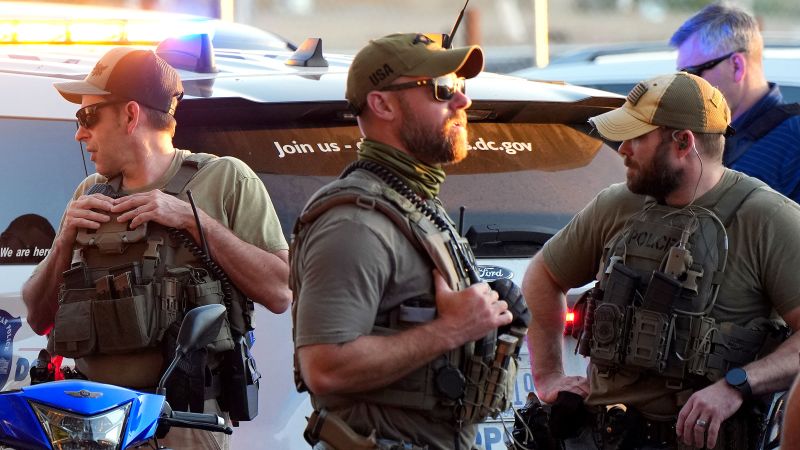
Public Opinion Divided on Federal Role in Addressing Urban Crime
Opinion | 8/27/2025
Two recent polls indicate a significant partisan split regarding the federal government’s role in addressing crime in American cities. The polls highlight contrasting views among Americans on the extent of federal involvement in combating urban crime, amidst widespread concern about the prevalence of criminal activities in urban areas.
While a substantial portion of the population perceives crime in cities as a significant issue, opinions diverge sharply along partisan lines when it comes to the federal government’s intervention in tackling this problem. The findings underscore the deep-seated divisions within the public regarding the appropriate approach to addressing crime at a national level.
One poll respondent, speaking on condition of anonymity, expressed skepticism about increased federal involvement in crime-fighting efforts, stating, “Local law enforcement should primarily handle urban crime issues, as they are more attuned to the specific needs of their communities.” This sentiment reflects a perspective shared by many who believe in a decentralized approach to addressing crime.
Conversely, another unnamed source highlighted the potential benefits of federal intervention, stating, “A coordinated federal strategy could provide additional resources and support to local law enforcement agencies, enhancing their capacity to combat crime effectively.” This viewpoint aligns with those advocating for a more centralized response to urban crime challenges.
The contrasting opinions revealed by the polls underscore the complex and deeply entrenched partisan divisions that shape public discourse on crime-fighting strategies in the United States. As the debate continues, the challenge remains to find common ground amidst differing perspectives on the role of the federal government in addressing crime in urban areas.


